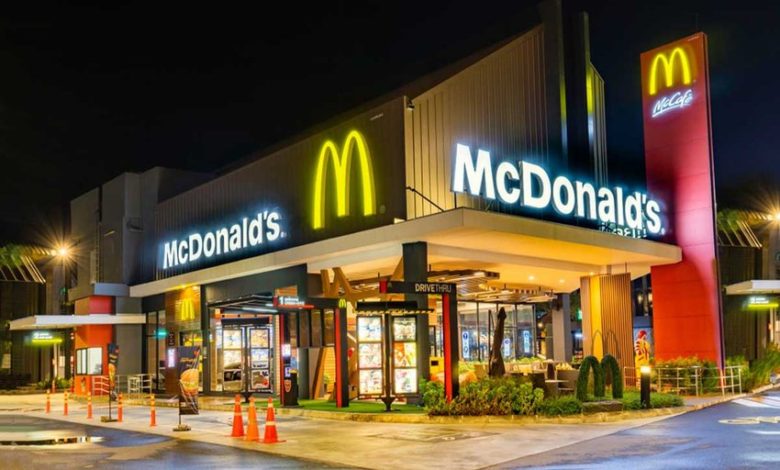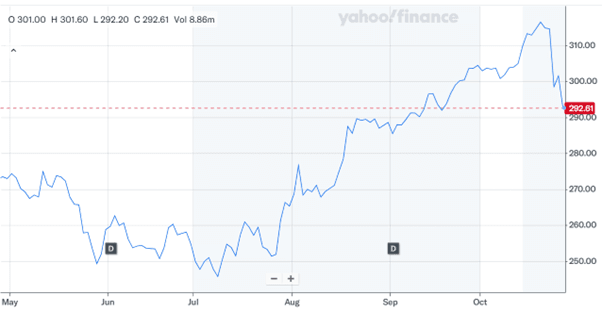E. Coli Crisis and Economic Woes: Can McDonald’s Regain Consumer Trust?

McDonald’s Corporation (NYSE:MCD) is facing new challenges that have rattled its investors and customers alike. After the Centers for Disease Control and Prevention (CDC) linked an E. coli outbreak to the chain’s Quarter Pounder burgers, McDonald's shares tumbled in extended trading. The outbreak, which has already resulted in 22 hospitalizations and one reported fatality, placed the company under significant scrutiny. The investigation suggested that slivered onions from a Taylor Farms facility in Colorado Springs are the likely source of contamination, affecting 13 states, including regions in the Midwest and Mountain areas. McDonald's has responded by halting the use of these onions in affected states, impacting menu items across hundreds of locations. Although the company is taking swift and decisive action, the implications on consumer trust and financial performance are yet to fully unfold. Let us take a closer look at the biggest challenges that McDonald’s faces today, that have come to the forefront after this E. coli scare.
Food Safety Concerns & Reputation Risk
The E. coli outbreak linked to McDonald’s Quarter Pounder burgers has significantly impacted the company’s reputation, raising serious concerns about food safety across its supply chain. McDonald’s, which relies heavily on its core menu items like the Quarter Pounder for billions in revenue annually, is facing a public relations crisis. While the outbreak has led to 22 hospitalizations and a fatality, the root cause has been traced back to slivered onions from a specific supplier facility. Though beef patties were initially suspected, testing cleared them, and the CDC and FDA investigations point to the Colorado Springs facility of Taylor Farms as the probable source. McDonald’s rapid removal of affected onions and Quarter Pounders from impacted states may mitigate some concerns, but the lingering consumer perception of risk could still take months to recover. Extended disruptions of key menu items could further exacerbate revenue loss in these regions. Food safety is integral to brand trust, and if McDonald's fails to regain consumer confidence quickly, it may face long-term damage to its bottom line and market position.
Macroeconomic Pressures & Declining Consumer Demand
As discussed in McDonald’s latest earnings call, the company is grappling with macroeconomic headwinds that have severely dampened its financial performance. Global inflationary pressures, particularly on food and labor, have led to significant cost increases across McDonald's supply chain, forcing the company to raise menu prices. However, these price hikes have alienated a key segment of McDonald's customer base—lower-income consumers. Management has noted a more pronounced slowdown in traffic from these households, who are particularly sensitive to price increases. In markets like the U.S., Australia, and Germany, McDonald's is witnessing a marked decline in comparable sales and customer traffic, highlighting the challenges it faces. The company’s attempts to offset rising costs through menu innovation, such as its new "Best Burger" initiative, have not yielded the desired impact, with many consumers still opting for cheaper alternatives or cooking at home. This dynamic has created a tougher environment for McDonald's to regain its footing. As lower-income families eat out less frequently and competition in the quick-service restaurant (QSR) sector heats up, McDonald’s must rethink its value strategy to remain relevant in an increasingly cost-conscious market.
Operational Disruptions & Supply Chain Vulnerabilities
The E. coli outbreak has exposed vulnerabilities in McDonald's supply chain and operations. Despite McDonald's reputation for consistency and efficiency, this incident underscores the risks of reliance on a limited number of suppliers for key ingredients. With slivered onions from Taylor Farms identified as the contamination source, McDonald's temporarily halted Quarter Pounder sales in affected states, including Colorado and Wyoming. While McDonald's has since resumed sales of the Quarter Pounder without onions in these areas, the incident raises questions about the resilience of its supply chain. The voluntary recall initiated by Taylor Farms and similar actions from other fast-food chains highlight industry-wide caution. Rebuilding consumer trust and ensuring robust supply chain monitoring will likely require further investment, which may affect profit margins as McDonald's faces ongoing economic pressures. The company’s efforts to expand its digital footprint and loyalty programs may also be hindered by operational challenges, as consumer satisfaction dips amid menu shortages and safety concerns.
Final Thoughts

Source: Yahoo Finance
In light of these recent developments, McDonald’s investors showed visible signs of panic leading to a selloff that has resulted in a massive correction in its stock price. Today, the management finds itself at a critical juncture. The E. coli outbreak has shaken consumer confidence in the brand’s food safety standards, while ongoing macroeconomic challenges threaten its bottom line. Although McDonald's has significant competitive advantages—such as brand strength, scale, and a loyal customer base—these benefits may not be enough to offset the near-term risks. Overall, we believe that while the company is working diligently to address the current crisis and implement long-term strategic initiatives, the road to recovery may be longer than anticipated which is why we suggest a cautious approach, especially as the full impact of these challenges unfolds in the coming quarters.




